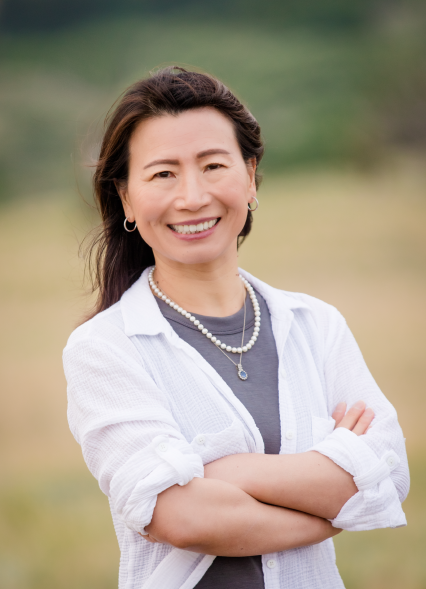Being a Female Engineering Professor
About Katie Li-Oakey
Katie Li-Oakey is a teacher to her students, a cook to her family, and a hiker to the mountains, but to me, she is my mother. A role model and a leader. Someone I strive to be like.
How did growing up in a village in China affect who you are today?
“Even though [my village] was relatively rural compared to big cities like Beijing or Shanghai, having my dad as the leader [and entrepreneur] of that community, I was exposed to local leaders and also exposed to many of those chemical processing during that time. So when you think about it, extracting oil from cotton seeds and fertilizer plants are all [examples of] chemical processing, things I teach for chemical engineering students.”
During your education, were you ever discriminated against for being an Asian woman?
“I have been in a field with so few women that [over time, I have learned] some techniques to focus on what I have control over. I try not to let other people’s attitudes affect me. So especially during my education I do not feel like I was treated unfairly. Educators in general are open-minded because people communicate on the intellectual level.”
As a professor, do you feel like you are being discriminated against more than when you were in school?
“So after school, I went to work for a Fortune 100 American company, Intel Corporation. On that team, I was one of the two females and...I was a team leader, so I started feeling some...discrimination might be too strong of a word, but I did feel resistance from team members, including you know, the manager [who] was a Caucasian male. When they work with someone who doesn’t look like them, but they’re their technical boss, I did feel some resistance. I think some of it is because they did not understand the cultural difference. So I think I will use the word resistance to a female leader more than labeling it as discrimination.”
Have you grown to feel more comfortable in your job than you did when you first started?
Yes. In the past 10 years, not only [did I teach] many students and classes but I have also really enjoyed the process of teaching and working with talented and motivated young people. I was also able to build a research group to focus on areas I would have worked on in industry, but I have more freedom to go in the direction I choose, which is a privilege for sure.
So how would you say that your view of the world is different from that of a caucasian male?
Sometimes it’s hard to see or to know how other people’s experience may be. However, because I’m married to a Caucasian male, his experience in the past ten years in the same Department, the same university is black and white different from mine. So if I did not see how different things are firsthand for him versus for me, I probably still [would be] numb or blind to how I was treated. I often found that the metrics keep changing when it comes to me, almost like trying to shoot a moving target on some metrics, but I managed to work with things I have control over.
“Just choose what you want to do, try to focus on [the] things you have control over.”
-Katie Li-Oakey
Do you think that women have enough power and say in things not just in your field but in the world?
No. Not yet. I mean, we are roughly 50% of the population, but everywhere you go, in corporate or higher education, you don’t see many [women], especially in STEM fields you don’t see 50% of women, especially in leadership roles.
Do you have any advice for young girls who might want to pursue a job in a field that may have more men than women in it?
From my experience, this movement of equality is going to take time...it just takes time. [These] things won’t happen, equality, won’t [just] happen overnight. Just choose what you want to do, try to focus on things you have control over, learn to seek help from seniors. I should also mention I have had numerous wonderful mentors who are Caucasian males, and they helped me become who I am today. Starting from my Ph.D. advisors…[to] mentors at Intel. There are many people who are open-minded, who are fair, and who [have] helped me move along in my career development. So I advise young girls who want to focus on the work that truly motivates them, do not let the percentage of females versus males affect their decision.
““From my experience, this movement of equality is going to take time, it just takes time, equality won’t happen overnight.” ”



